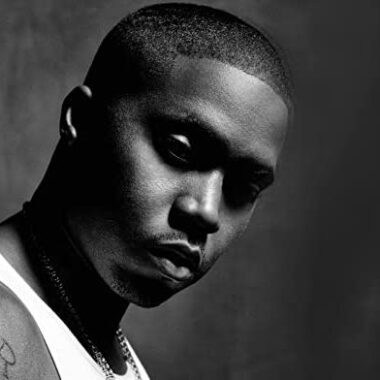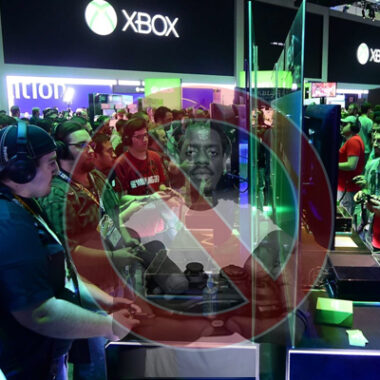When my Twitter timeline is overrun by Black boot licks, suck ups and ass kisses, I often ask myself:
What would Ralph Wiley think?
The irony is that without Black Sports Journalism trailblazers like Wiley, paid shills like Stephen A. Smith and Jason Whitlock wouldn’t have gotten the opportunities they have been afforded–especially in the realm of sports.
Table of Contents
His Beginnings
Ralph Wiley was born to Ralph H. Wiley and Dorothy Brown in 1952. Ralph Wiley’s most formative years belong to the 1960’s, and more specifically; 1968 when the assassination of the Honorable Dr. Martin Luther King Jr. took place in his hometown. After high school, Ralph elected for Knoxville College where he joined the football team.
After graduation, Wiley headed westbound for Oakland, California. At the time, Oakland was notable for the Black Panther Party and a dynastic period for its sports teams. The Raiders were in contention for the AFC championship, the Warriors won the NBA title, and the Athletics were vying for the AL Pennant.
From Athlete to Journalist
Wiley soon landed a job as a copy boy for the Oakland Tribune. Within a few years, he was a beat writer and lone NBA guy for the paper.
Considering the racial dynamics of Major League Baseball, Ralph Wiley was the Jackie Robinson of beat writers. His confidence and style were off putting to the crusty old sportswriters of the time but they had to respect his skill. He once joked:
“I could tell if I was writing good stuff if my colleagues stopped talking to me and knew when I wasn’t doing too well when those sa,w colleagues were slapping me on the back and giving me high fives”
Wiley was one of the first Black individuals to successfully navigate the old boys club that the MLB had become.
One of Wiley’s “Trump” cards would his Blackness, which he used to gain access to Black players around the league. This allowed him to provide an insight that white writers simply couldn’t and refused to get. By 1980, WIley had become a nationally known name in Sports Journalism and coined the phrase, “Billy ball”. He eventually moved on to a job with Sports Illustrated in New York. Wiley became the default voice for Black athletes, writing insightful pieces on Muhammad Ali, Big John Thompson and Eric Davis. He even helped negotiate Raghib Ismail’s multi-million-dollar contract with the CFL’s Toronto Argonauts.
Wiley Moves Beyond Black Sports Journalism
Over the next two decades, Wiley wrote on other third-rail topics such as race, politics, and religion. What made his writings so impactful was that he provided social commentary in a witty, deft, and articulate manner. Every piece showcased his wry humor and keen observation. In addition to being an elite writer, he also a mentored many Black faces you see in journalism today. Michael Wilbon, J.A. Adande, David Aldridge and even Stephen A. Smith spoke to the encouragement and guidance he provided.
After his time at Sports Illustrated, Wiley would begun filling bookstore shelves with his memoirs and essays. “Why Black People Tend to Shout” was one of Wiley’s most notable works; speaking on Black life via a collection of essays. Additional works were:
- By Any Means Necessary: The Trials and Tribulations of the Making of Malcolm X w/Spike Lee
- Best Seat in the House w/Spike Lee
- Born to Play w/Red’s Star Eric Davis
- Growing Up King w/Dexter King
Some of his most famous topics include: the O.J. trial, Rodney King, Jeffrey Dahmer, Mike Tyson, Arthur Ashe, and more. In retrospect, it’s clear to see that Wiley had his finger on the pulse of America, past and present. Much like other notable Black Americans, some of his works were outright prophetic.
The Void Left in His Passing
Ralph Wiley was ahead of his time and passed before sportswriters and talking heads were paid handsomely for their opinion. Rumor has it that First Take and the like are built on a format that was pitched by Wiley for many years, “Reilly vs. Wiley”. This combative style has become commonplace in the industry and has provided a voice for Black people to counter racist trolls such as Will Cain, Colin Cowherd, and Doug Gottlieb. Wiley would have done amazing in this role as he provided nothing but receipts– whether it was for why he thought the Pistons would win the 2004 Finals or why Dinesh D’souza’s racist ass could find a voice so easily in this country by being anti- Black.
The saddest part of Wiley’s passing is that people consider Black sportswriters like Bomani Jones, Jemele Hill, and LZ Granderson as real barometers of what is happening in the streets. Players like Antonio Brown, Chad Johnson, Ray Rice and Sean Taylor (Rest in Peace) have almost no Black support in the press box because modern Black sportswriters are controlled opposition that push corporate approved talking points. None of these Black writers/sports personalities are willing to take on the hypocritical media giving passes to white players like Ben Roethlisberger, Aaron Rodgers, Tom Brady, and Chad Wheeler, when Black players find their names and faces plastered on national headlines for similar or lesser transgressions. To learn more about these talking head read our article about subconscious coons.
Representation Isn’t Everything
Representation only matters if the face in question serves the interests of the people they are there to support. Most Black faces in sports media are there to provide cover for White racism. The Black Sportscaster is there to vocalize anti-Black talking points on behalf of White racists. The racists are then able to state “I agree with Black sportscaster” and can plead ignorance when called out. Ralph Wiley was not one of these crash test dummies. He refused to be a token, or a shield for these suspected white supremacists in the sports media.
Unfortunately, you could spend a whole weekend at the National American Black Journalist convention and not find another Wiley. As much as this saddens me, it’s also why he should be celebrated. He opened doors and minds, and created a lane not just for himself, but for other Blacks to follow. He was a game changer.






3 comments
Amen.!
Thank you for writing this razor sharp article. I miss the wit , social consciousness and frank observations of Mr. Wiley too.
A lot of these black sports journalists of today are nothing more than clowns and puppets for the white sports media companies that own THEM. Clownery and buffoonery is what sells in todays world of sports journalism.
They will do anything for a check!